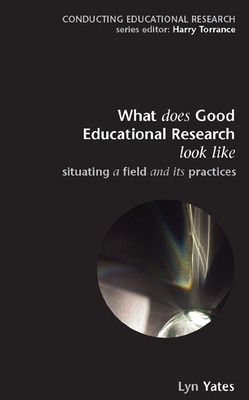What does Good Education Research Look Like?
- Access the eBook anytime, anywhere: online or offline
- Create notes, flashcards and make annotations while you study
- Full searchable content: quickly find the answers you are looking for
Situating a field and its practices
Introduction
Part 1: Political and Paradigm Disputes, Historical Change and the field of education
Chapter 1: What 'does' educational research look like? Some beginnings and Debates
Chapter 2: History, Fashion and Academic Research in Education
Part 2: Arenas Of Educational Research: Contexts, Genres and the Rules of the Game
Chapter 3: The Thesis
Chapter 4: Academic Journals
Chapter 5: Competitive Research Grants
Chapter 6: Commissioned Research
Chapter 7: Schools, teachers and other practitioner users
Chapter 8: Publishing Books
Chapter 9: The Press
Conclusion
Chapter 10: Situating Research Practices
“This brilliant guide to judging educational research examines the most basic questions about research practice that most people think are settled, and reveals them as problematic… Humorous, sharp, and thoughtful, this readable inquisition explores from differing perspectives ‘what does good education research look like’ in multiple forms including dissertations, journal articles, and grant proposals.” – Sari Knopp Biklen, Laura and Douglas Meredith Professor, Syracuse University, USA
This book explains and critically examines some key debates about the quality and value of education research, and shows how it must meet different demands in different places, times and conditions. A major part of the book provides detailed analyses and guidance to different areas in which education research is judged: from academic theses to the press; from highest level competition for prestigious grants to collaborative work with practitioners.
Lyn Yates asks probing questions in six education research arenas – the thesis, the research grant application, the journal article, the consultancy application, book publishing, and the press:
- Who are the judges here?
- What expectations and networks do they bring to the task?
- What are the explicit and implicit criteria for good research in that area?
- What are the common failings?
- What does good research look like?

